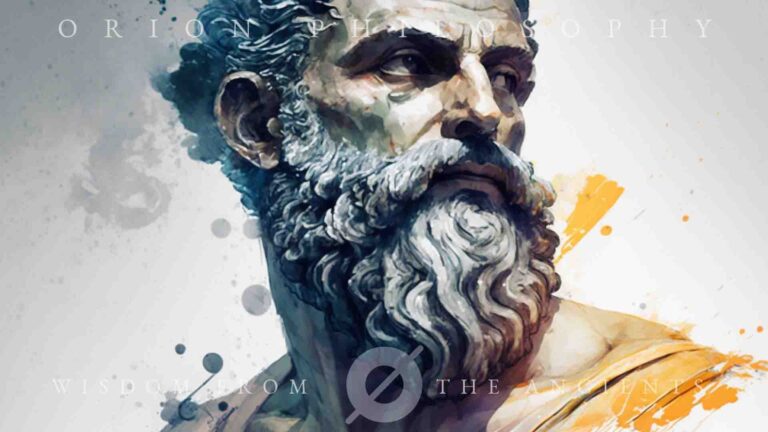What is an inner locus of control?
An inner locus of control is the belief that we have control and sovereignty over the actions we take and the impact those actions have on the world around us.
Those with an inner locus of control believe that they are fully responsible for their actions, that they are in charge of their lives, and that they have to power to shape their own future through making the right decisions. This, in turn, leads them to be proactive and take initiative. They are the captains of their soul and they act accordingly.
In contrast, those with an outer locus of control believe that their lives are controlled by the external world, that they are a leaf on the wind, being dragged this way and that depending on what is going on around them. People like this tend to believe that their lives are guided by fate and that nothing they can do can change what is already pre-determined.
Research has show that those with an inner locus of control generally have better mental health, are more able to meet milestones and goals, and have a more optimistic outlook on life in general.
The Stoics believed that the concept of control is core to developing resilient happiness. They taught that some things are within our control, for which we have to take full responsibility, and other things are outside our control, which we have to learn to accept.
Getting this right will lead to a more tranquil, resilient and happy live. Getting this wrong will lead to frustration, anger, bitterness and a defeatist attitude towards life’s problems. More on this later on.
How can we an inner locus of control?
How we see control is not set in stone, we can learn to develop a more constructive and effective mindset regarding what we have the power to change and what we do not.
Simply put; we have control over our thoughts, actions, beliefs, values, perception, biases and responses. essentially our inner world. We don’t have control over basically everything else.
Here are some ways to help develop an inner locus of control:
-
Learn to take responsibility for our thoughts and actions: We can begin to accept that we are the only person responsible for how we act, and we are responsible for the consequences of those actions. This may be a hard reality to accept, but blame will get us nowhere when we are the ones in charge of how we act.
-
Set goals: When we set a goal and make strides towards achieving that goal we show ourselves that our decisions and our actions make a difference to the overall outcome. Goals give us a sense of purpose and direction, and meeting goals shows us that we are the ones with the power to make or break them.
-
Take action: After goals have been set, make yourself accountable for taking the steps needed to achieve the goal. Over time, when we learn that our decisions make a difference, we also begin to feel a greater sense of control over ourselves and the difference we can make.
-
Learn from the past: Like all plans, not everything goes perfectly, through the meeting of obstacles and difficulties we can learn to adapt and overcome them. This teaches us to reflect on what is going on and deal with the task at hand, not blaming fate or thinking that we’re a victim. If there’s a problem, accept it and look to how it can be solved.
All of this will take time, but small actions over time will slowly shift our mindset from one of passive acceptance, to one of active involvement. The difference in these two mindsets can make a profound impact on well-being and happiness.
The Stoics on control:
The Stoic philosopher Epictetus taught about the concept of the dichotomy of control. There are some things within our power to control and some things that are not.
When we try and control the uncontrollable we put our time and effort into the areas of life that will not change no matter how upset or forceful we become. This in turn makes us feel helpless, it creates a feeling of ineffectiveness and undermines our well-being.
However, if we are able to clearly define what we can control, and we focus our efforts there instead, we become far more effective, and over time as we see our efforts converted into change, we see that our actions do make a difference and that we are an influence on the world around us.
Epictetus said:
“Some things are in our control and others not. Things in our control are opinion, pursuit, desire, aversion, and, in a word, whatever are our own actions. Things not in our control are body, property, reputation, command, and, in one word, whatever are not our actions. The things in our control are by nature free, unrestrained, unhindered; but those not in our control are weak, slavish, restrained, belonging to others. Remember, then, that if you suppose that things which are slavish by nature are also free, and that what belongs to others is your own, then you will be hindered. You will lament, you will be disturbed, and you will find fault both with gods and men. But if you suppose that only to be your own which is your own, and what belongs to others such as it really is, then no one will ever compel you or restrain you. Further, you will find fault with no one or accuse no one. You will do nothing against your will. No one will hurt you, you will have no enemies, and you not be harmed.”






